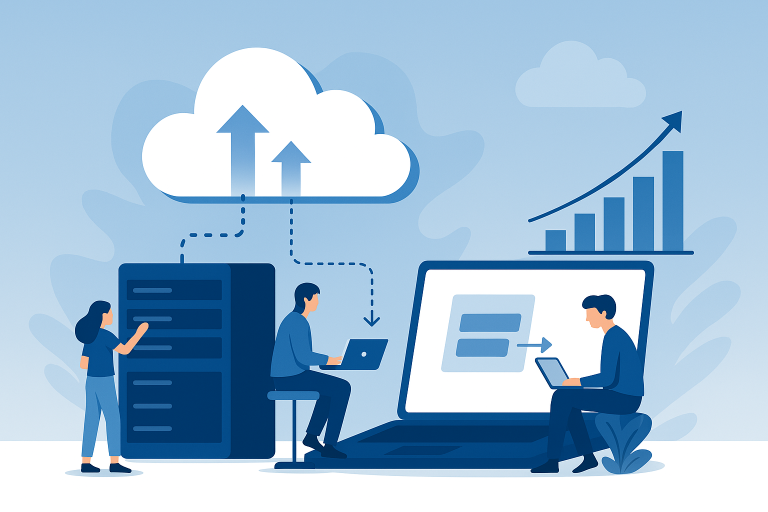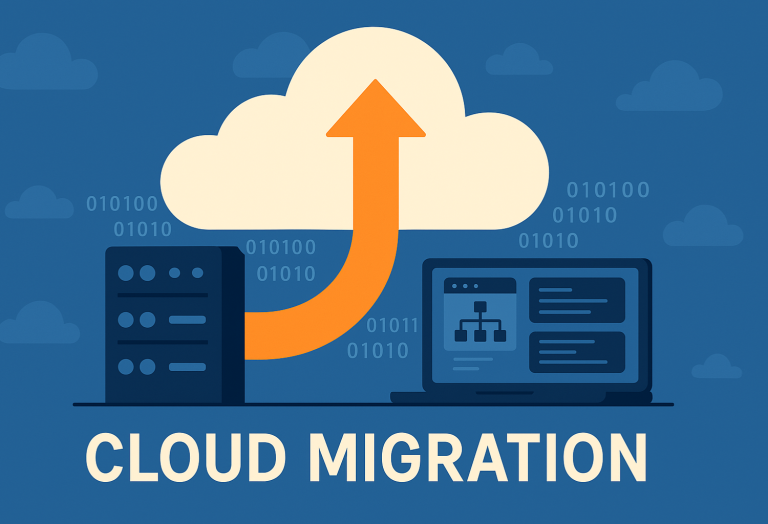
In today’s technology-driven world, businesses of all sizes rely on IT infrastructure to carry out their daily operations efficiently. However, maintaining IT systems can be daunting, especially for small and medium-sized businesses (SMBs) with restricted resources. That’s where managed IT service providers (MSPs) come in. MSPs offer a wide range of services, including network management, data backup, and security solutions, to help businesses optimize their IT infrastructure.
In recent years, the demand for MSPs has skyrocketed, and it’s not hard to see why. With the increasing complexity of IT systems, businesses find it challenging to manage their IT infrastructure in-house. Moreover, the rise of remote work and the need for secure, reliable access to IT resources has only added to the demand for MSPs.
As we move into the future, the MSP industry is set to undergo significant changes. In this blog post, we’ll explore some of the latest trends and predictions for MSPs.
Trend 1: Cloud-Based Services
One of the most noteworthy trends shaping the MSP industry is the shift toward cloud-based services. Cloud computing has revolutionized how businesses manage their IT infrastructure, offering scalability, flexibility, and cost savings. Managed IT service providers can capitalize on this trend by offering cloud-based solutions like SaaS, PaaS, and IaaS.
Cloud-based services offer several advantages over traditional IT solutions. For one, they allow businesses to access IT resources from anywhere, anytime, making it easier to support remote work. Cloud-based services are scalable, enabling companies to easily adjust resources without investing in expensive hardware or software.
Trend 2: Artificial Intelligence and Automation
Another prevalent trend is the integration of artificial intelligence (AI) and automation in businesses to make the job of business owners easy and efficient. AI and automation are already revolutionizing many industries, and the IT industry is no exception.
MSPs can leverage AI and automation to provide their clients with faster, more efficient services. For example, AI-powered chatbots can help customers troubleshoot technical issues and provide support 24/7. Additionally, automation tools can help MSPs streamline their operations, minimizing the requirement for manual intervention and freeing up internal employees to focus on more strategic tasks.
Trend 3: Cybersecurity
Cybersecurity has always been a top concern for businesses, but it’s becoming even more critical as cyber threats become more sophisticated and frequent. Managed IT providers help companies combat threats with cybersecurity services like vulnerability assessments and data encryption.
In the coming years, you can expect MSPs to play a more critical role in cybersecurity. Moreover, as more businesses move their operations online, the need for robust security solutions will only increase. Therefore, MSPs must stay ahead of threats and provide comprehensive security solutions to protect clients from cyber-attacks.
Trend 4: Data Analytics and Business Intelligence
Data analytics and business intelligence are increasingly becoming key drivers of business success. MSPs help businesses harness data and analytics with services like visualization, business intelligence, and predictive analytics.
By providing businesses with insights into their operations, MSPs enable them to make more informed decisions and stay ahead of the competition. Furthermore, as companies continue to generate more data, MSPs that offer sophisticated data analytics solutions will increasingly be in high demand.
Trend 5: Remote Work
The COVID-19 pandemic has significantly influenced the adoption of remote work culture, thereby posing new challenges for businesses in managing IT infrastructure and ensuring secure access to resources. Moreover, even after the pandemic, many organizations have chosen to continue with this remote working culture. Consequently, MSPs play a crucial role in providing a secure and comfortable work environment. Specifically, MSPs offer VPNs, remote desktop access, and cloud collaboration tools to optimize IT for secure remote work.
As companies adopt virtual work, MSPs can optimize their IT infrastructure for remote environments. This includes helping businesses set up virtual desktops, cloud collaboration tools, and training for remote workers.
Trend 6: Internet of Things (IoT)
IoT is one of those trends that is set to have a crucial impact on the MSP industry. IoT refers to the interconnectivity of systems, allowing them to communicate and exchange data. Along with the growth of IoT, businesses increasingly rely on connected devices to monitor their operations, collect data, and improve efficiency.
MSPs can help businesses take advantage of IoT by offering services such as IoT device management, data analytics, and security solutions. By providing these services, MSPs can help companies to harness the power of IoT to improve their operations and increase efficiency.
Trend 7: Managed Hybrid IT
Managed hybrid IT is another trend that is set to shape the MSP industry. Hybrid IT refers to combining cloud-based services and traditional IT infrastructure, allowing businesses to take advantage of both benefits. Managed hybrid IT refers to outsourcing the management of hybrid IT environments to MSPs.
MSPs can help businesses manage their hybrid IT environments, offering services such as cloud migration, hybrid IT management, and cost optimization. Managed IT providers help businesses leverage hybrid IT for scalability and flexibility, ensuring security and reliability.
Conclusion
The MSP industry will evolve with trends in cloud services, AI, cybersecurity, data analytics, remote work, IoT, and hybrid IT. To stay ahead of the competition, a managed IT services partner needs to be able to offer comprehensive solutions that meet the evolving needs of their clients. By doing so, MSPs can play a critical role in helping businesses optimize their IT infrastructure, improve their operations, and achieve a competitive edge.

